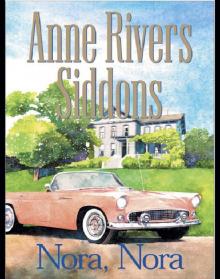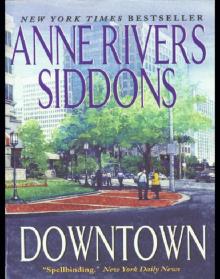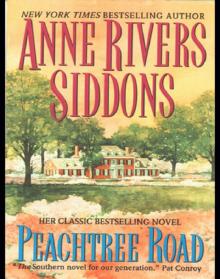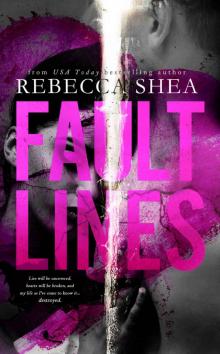- Home
- Anne Rivers Siddons
House Next Door
House Next Door Read online
It doesn’t matter what other people think.
Not any more.
Our friends are going to think we have taken leave of our senses, and we are going to lose many of them.
This is the sort of thing that engenders mild teasing or pleasurable gasps of not-quite-believing fear when it is kept within the bounds of the group. It is something else entirely now that we have spread it out for all the world to see. That isn’t done in our set. It lacks taste, and though we don’t use the word, class.
Worst of all, we have believed the unbelievable and spoken the unspeakable. Yes, we will lose our friends. We cannot worry about that either.
For the Harralson house is haunted, and in quite a terrible way.
Praise for
THE HOUSE NEXTDOOR
“Spellbinding…. You will not be able to put down this book.”
—Dallas Times Herald
“Haunting.”
—The New York Post
Books by Anne Rivers Siddons
John Chancellor Makes Me Cry
Heartbreak Hotel
The House Next Door
Fox’s Earth
Homeplace
Peachtree Road
King’s Oak
Outer Banks
Colony
Hill Towns
Downtown
Fault Lines
Up Island
Low Country
Nora, Nora
Islands
Sweetwater Creek
This book is a work of fiction. Names, characters, places and incidents are products of the author’s imagination or are used fictitiously. Any resemblance to actual events or locales or persons, living or dead, is entirely coincidental.
Copyright © 1978 by Anne Rivers Siddons
Copyright renewed © 2006 by Anne Rivers Siddons
All rights reserved, including the right to reproduce this book or portions thereof in any form whatsoever. For information address Pocket Books Subsidiary Rights Department, 1230 Avenue of the Americas, New York, NY 10020
POCKET and colophon are registered trademarks of Simon & Schuster, Inc.
ISBN-13: 978-1-4165-7035-6
ISBN-10: 1-4165-7035-7
Visit us on the World Wide Web:
http://www.SimonSays.com
For Annalee
The House Next Door
Prologue
PEOPLE LIKE US don’t appear in People magazine. We are not rich or about-to-be rich enough; we are not young and lithe and up-and-coming, though we are not old and venerable and full of endearing foibles and crusts of pithy wisdom either. We have no particular talents except, I think, a small talent for living fairly serenely and well most of the time. We have neither of us ever written—nor will we write—a first novel that sold for $1.5 million in paperback rights and caught the fancy of Robert Redford, who thought it would make a fine movie. We have formed no national organizations for minority groups or children with rare and baffling diseases. We have no children. We do have some few friends who have been in People magazine, fringe celebrities, people who do odd things, but none of the biggies, none of the ones who elicit two columns of letters to the editors. We have some friends who are fairly eminent in other ways too—in their professions, in their social standings (though not a great many of those), in the amounts of their personal fortunes (not so many of those either). But we are not eminent. We are appreciators. It seems to serve us well.
We have a good house, but not a grand one, in a better neighborhood than we can really afford, because the down payment was a wedding gift from my parents. We have two cars, which is all we need since there are only two of us. Walter has the obligatory tobacco-brown Mercedes sedan, and I have the obligatory compact station wagon, in which I can comfortably carry the things I like and collect—some antique pieces of the Georgia Federal period, which do not at all fit the mood of my old, square, two-story brick house but which I love; many plants; stones picked up out by the river for the rock garden I’m slowly building. It accommodates the cats and their carrier very well, too, on their frequent trips to the vet. They are both neutered, but race memory is strong and they tackle with relish any marauding tom who comes through looking for a fight. They usually lose.
We have careers that we like—or rather, Walter has a career; he’s president of a medium-sized, good advertising agency which he formed seven years ago with his friend and then co-worker at a large, exceedingly dull advertising agency. Charlie and Walter have done well, and they are under no illusions about the agency, either that it will set the world on fire and win Clios every year or that it will fold and leave them jobless at the mid-life crisis. Kennedy and Satterfield, Inc., is right for them. It will grow but not too much. It has kept us comfortable.
I do free-lance public relations for a few loyal and fairly prestigious accounts, people I’ve known since I came to the city fresh out of Vanderbilt with an English degree and a burning desire, not to write the Great American Novel, but to work in a public relations agency. I did, for eleven years, and became accomplished enough at it to have a title on the door and a Bigelow on the floor, as it were, and my own secretary, and when I left the agency I shamelessly took three or four of my favorite small accounts with me. I can handle them in about three days a week, and I have the rest of the time free to pursue my own interests. They are self-indulgent, leisurely interests, and I figure I’ve paid for my right to them. I would not be content if I didn’t do some sort of work. Happily, I am good at what I do.
All this is by way of saying that we are fairly ordinary people, Walter and I. Not the norm, maybe; I think we add up to something quite graceful and special, something that both enriches and adorns the small world we live in. Our friends say so. But not, surely, the stuff of People magazine.
And yet there we are, this week, Walter and I. Sitting on the white wrought-iron patio chairs, looking just like what we are—mildly affluent people in their middle thirties, well and casually dressed, tanned from a summer of not-so-good tennis at the club, pleasant people who like their lives and appear to love each other. Two people leaning a bit forward, looking across a lawn that doesn’t appear in the photograph to a house, a house built on a pretty, hilly, wooded lot next door, which doesn’t appear in the photograph either. But the house is the reason we are there. The house next door is haunted, and I am the one responsible for all the publicity. I called the local People correspondent and told him my story, and I suppose he thought I was just nut enough to warrant checking out. After he did, he thought it was a good story. He thought his editors would like it. And he undoubtedly thought I was an aggressive, faintly mad, publicity-seeking, middle-aged housewife with nothing to do and a house next door that did, admittedly, have some pretty odd things going on in it.
It doesn’t matter what he thinks or what other people think. Not any more. Our friends are going to think we have taken leave of our senses, and we are going to lose many of them. This is the sort of thing that engenders mild teasing or pleasurable gasps of not-quite-believing fear when it is kept within the bounds of the group. It is something else entirely now that we have spread it out for all the world to see. That isn’t done in our set. It lacks taste, and though we don’t use the word, class. Worst of all, we have believed the unbelievable and spoken the unspeakable. Yes, we will lose our friends. We cannot worry about that either.
For the Harralson house is haunted, and in quite a terrible way. And it is up for sale again. We’re telling as much of the story as we feel is necessary—but by no means all of it—to warn people about it. We took this way because we know by now that no reputable straight news medium will give us air time or column space and we wanted to reach as many people as possible as fast as possible. We can
document just enough of the story to intrigue People; we do not try to explain it. We have a theory of sorts, but that is beside the point now.
We know we run the risk of attracting people to the house; there is a certain type of person who, God help him, will come in droves to see the house, will want to buy it perhaps. These people we will try to see and warn on an individual basis, as they come. We will keep watch. The agents will loathe us, of course, and will tell these people that we are crazy, but we will keep on. Perhaps someone will sue us—we are not sure who exactly, since the people who lived in the house until a month ago are dead now. We notice that a different realty firm is handling the house this time. That doesn’t surprise us. It’s been a different firm for each sale. Eventually, we hope, no reputable firm in town will touch the house and it will be quietly taken off the market.
But until that happens we will try to get to everyone who comes to see the house, and we will tell them whatever we need to tell them to drive them away. If the article in People leads to more publicity—and this sort of thing usually does—we will welcome it and use it, and we will tell again about the house. And again. Walter thinks it is probable that he will have to pull out of the agency, to sell his interest to Charlie. The agency will suffer from this if he does not. Thirty people’s livelihoods will be in jeopardy. I know that I will lose my clients. Two have left messages with my answering service for me to call them since this morning. We have a few stocks, some savings, other investments. Charlie’s offer will be generous. We can live quite comfortably for as long as it takes.
If we find that all our efforts have failed and someone buys the house, we shall set fire to it and burn it down. We will do this at night, before it is occupied. In another time they would have plowed the charred ground and sowed it with salt.
If it should come to that, I do not think we will be punished.
I do not think we will be alive long enough.
PART ONE
The Harralsons
1
CLAIRE SWANSON from two doors up was the first one to tell me about the Harralson house. She and Roger have lived in the yellow Dutch colonial for years, far longer than we’ve been in ours. Claire is square, sturdy, and somehow comfortingly basic-looking—low to the ground, as she says herself. Built for stamina, not speed. Those solid hips, impervious to her regular tennis matches and her clockwork morning jogging expeditions around the little park that divides our street, have cradled and spawned three boys. Nice kids they are, in their middle and late teens. The whole street enjoys them and employs them regularly for yard work and the kind of nasty, heavy work you can’t get anybody to do for you anymore. They do it cheerfully, coming in with a twang-thud of screened door for Cokes and midday sandwiches and to use the telephone.
“Hi, Colquitt,” they’ll say to me, looming large and rank-sweating from a morning of wrestling our ill-tempered old power mower up and down our terraced front yard. “You look like you’re painted into those Levi’s.”
Since I have known them through broken arms and acne and sullen excursions to dancing classes, and since the Levi’s do look painted on me, and I am proud that I still have the long, flat thighs to wear them, I don’t mind the familiarities. I would mind them, very much, from almost any other boys their age. I am not a formal person, but I am rather private.
Claire and Roger are old money in the city, and the boys don’t have to do the work. Their parents insist on it, however. In this very New South city, Walter and I have noticed that the Old South element of it clings to the substantial virtues of work, lack of ostentation, and a nearness to the earth that survives even in their manicured city neighborhoods.
“I don’t see the point in all this plain down-hominess,” a vivid, restless woman whose husband’s nationally prominent corporation had just moved its headquarters here said to me once at a ballet guild meeting. She was in linear black linen and Elsa Peretti silver on a swimming August afternoon in Florence Pell’s legendary back garden, a coutured raven in a field of sundresses and pants and espadrilles.
“I mean, what good does their money do them? I know they have it—my God, Carl says some of them could buy and sell Fairfield County. But I haven’t seen live-in servants or a driver since I left New York. They keep going to Europe, for God’s sake, if they go anywhere at all. They don’t have boats. If they have summer places, they’re down on that God-forsaken, potty little island you all are so insane over. I haven’t seen one single piece of fantastic jewelry. They send their kids to Emory; can you name me one kid in this town who goes to Harvard or Yale or Vassar? They go to the grocery store. When they go out at night it’s to that mausoleum of a club. Why have it if you don’t have any fun with it?”
I suppose she felt free to say it to me because she knew Walter and I are not natives. And we certainly are not in the same financial league with some of our friends. But we are of them precisely because we understand the way they choose to live. It is our way too; we find grace and substance, a satisfying symmetry and a kind of roundness to it. We like our lives and our possessions to run smoothly. Chaos, violence, disorder, mindlessness all upset us. They do not frighten us, precisely, because we are aware of them. We watch the news, we are active in our own brand of rather liberal politics. We know we have built a shell for ourselves, but we have worked hard for the means to do it; we have chosen it. Surely we have the right to do that.
At any rate, Claire and Roger Swanson are a satisfying unit in our world, and have been good friends to us ever since we moved here. So when I stopped the car at the mailbox on my way home from work that afternoon a couple of years ago—I hadn’t left the agency then—and Claire hailed me from midway down the street where she was walking Buzzy, their elderly Schnauzer, I didn’t walk halfway to meet her, as I would have with some of the neighbors to whom we are not so close. I shouted, “Come on to the backyard and let’s have a sundowner. Walter’s working late. Bring Buzzy.”
“I have some news you’re just going to hate,” she said when she had leashed Buzzy to the leg of the wrought-iron table on our patio and had taken a long, grateful gulp of the bull shot I’d brought her. “Mmmm, that’s good. You make good drinks. Roger says you’re the only woman in town whose drinks don’t give him diarrhea the next morning.”
“Walter made me learn before we got married. It was one of the conditions. Living well is the best revenge—old Spanish proverb or something. What am I going to hate? Don’t tell me…Eloise is pregnant again.”
Eloise Jennings, in the gray Cape Cod across from us and catty-cornered across from the Swansons, had four children under the age of eight, two in diapers, and a front yard full of Day-Glo-colored plastic tricycles and wading pools and swing sets. They were whining, unattractive children who terrorized neighborhood pets and were apt to materialize in your kitchen uninvited, fingers in noses, looking into your refrigerator. Walter and I are very fond of some children, but not across the board, not as a species. No one on the street was very fond of the Jennings children. Or, if the truth were known, of the Jenningses. The house was his family home; they had been substantial people who had died and left the house to Semmes Jennings before we came. He was a broker downtown, and a posturing bully. Eloise had been his secretary.
“Probably,” Claire said, licking salt off her upper lip. “But that’s not it. The McIntyre lot’s been sold and they’re going to build a house on it.”
“Oh, shit!” I wailed. I don’t say that often, not like some of our friends, to whom casual obscenity is a not-uncharming habit. It’s not that I disapprove; I just don’t say it much. But this warranted a hearty “shit.”
“Isn’t it awful? I knew you’d hate it worse than anybody.” Claire did not look sympathetic; one of the things I find amusing about her is a totally unmalicious malice. Besides, the McIntyre lot was not next door to her. It separated our house from the Guthries’ to the left, and I have always loved it.
It is a peculiar lot, shaped like a narrow wedge of pie, b
roadest in back and tapering to a point at the street. It has—or did have—a steep ridge running like a spine down its length, thick with hardwoods and honeysuckle and tall old wild rhododendron. It is a shallow lot, stopping about on a line with our back patio, and a creek runs through it parallel to the street, bisecting it neatly into two halves. The same creek winds through our front yard and dips under the street, through a culvert, to reemerge in the small park that divides the street. Because of its narrowness and lack of depth, because of the ridge and creek, we had always been sure that no one could figure out how to put a house on it. Indeed, it had been up for sale at the same time our house was, and we had not bought it primarily because everyone on the street assured us that architect after architect had surveyed the site and pronounced it impossible to fit a house onto comfortably.
It had remained unsold. In our midtown neighborhood it was an oasis of wild, dark greenness, luminous in the spring with white dogwood and honeysuckle and rhododendron blooms, giving one the feeling of being cloistered away in a mountain retreat even though our street is only a block off one of the city’s main thoroughfares. Our bedroom windows overlooked it and so did the unused upstairs bedroom that I planned to make into an office when I left the agency. Downstairs, the kitchen and breakfast room looked out into its lacy bulk through prized old French doors. Outside, our patio faced it. The places, in short, where we lived, where we spent most of our time. Though the Guthries were just on the other side of the ridge, I could and did move freely and without constraint in that end of the house in my nightclothes, or in nothing, if I chose. I have a rather shameful penchant for that. I like the feeling of air on my body. I loved the sturdy chuckle of the creek, the nearness of the woods, the squirrels and birds and chipmunks and occasional possums and raccoons that skittered and shambled there. Virginia and Charles Guthrie loved the lot, I knew, for the same reasons we did. They are, as are most of us on this street, people who treasure space and greenness and privacy. The lot was a buffer, a grace note. Any house there, any house at all, no matter how well done, would stare directly into the core of our living. No matter how careful the architect, trees would have to go.

 Colony
Colony Nora, Nora
Nora, Nora House Next Door
House Next Door Homeplace
Homeplace Downtown
Downtown Peachtree Road
Peachtree Road Sweetwater Creek
Sweetwater Creek Fault Lines
Fault Lines Low Country
Low Country The Girls of August
The Girls of August Burnt Mountain
Burnt Mountain Islands
Islands